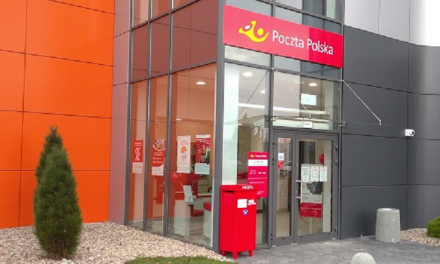
FedEx Russian Fiasco Opens Doors for Competitors
Ordered to Moscow to whip FedEx's Russian staff into shape, Chuck Noland decided to demonstrate how bad things were by sending himself a clock from Tennessee.
It took 80 hours.
"We live or die by the clock!" Noland shouted at his ambivalent staff.
But that was four years ago and Noland was actually a character played by Tom Hanks in the blockbuster "Cast Away," but if ever art presaged real life, this was it.
Fast-forward four years and FedEx is struggling to keep its Russian operations afloat after moving airports and replacing its longtime local agent in December — just days before a sweeping new customs regime came into force.
In a snarl-up that has yet to be fully unwound, thousands of FedEx packages became marooned at Domodedovo Airport, calling into question the company's membership in the "Big Four" club of express delivery providers in Russia, while simultaneously opening the door to upstart domestic companies.
Booming Market
Express delivery companies are notoriously tight-lipped about the financial side of their operations, and there is little independent research about their activities that can be considered authoritative, making it difficult to gauge turnover and trends.
But by most accounts, the industry has grown between 25 percent and 40 percent per year over the last three years, and just four Western companies — Dutch TNT, Brussels-based DHL and American UPS and FedEx — account for most of the action.
Industry players say that while international deliveries still account for most of the industry's revenues, future growth will hinge on express services within Russia. This, they say, is encouraging Western companies to expand aggressively nationwide while giving domestic upstarts like PonyExpress and Russian Post room to expand — developments that will eventually lead to lower prices for consumers.
"We have more than 100 offices in Russia right now, and we are adding more offices this year," Frank Ungerer, DHL's general manager for Russia, said in an interview.
Maria Korbut, TNT's marketing and sales manager in Moscow, said her company doubled its domestic operations last year, with growth particularly high in the Urals, Siberia and the Volga River area. As a result, Korbut said, the company is on the lookout for new industry segments such as pharmaceuticals, which it will move into this year.
FedEx, too, despite its recent troubles, is moving quickly. The company, which currently has just one sorting center in Moscow and one in St. Petersburg, plans to open 25 new offices across the country this year and a second sorting center in the capital.
Now competing for market share with FedEx is its former agent, Elf-91, which was bought by metals businessman Oleg Deripaska's Basic Element in 2002. Basic Element is now coordinating Elf-91's operations with those of two other express delivery companies it owns, PonyExpress and Rusco.
PonyExpress commercial director Vadim Drobot said that taken together, the three companies account for between 10 percent and 25 percent of the domestic market, depending on the type of service. In all, there are some 100 domestic express companies, the largest of which is Russian Post, the recently incorporated national postal network.
With more than 40,000 outlets manned by 300,000 employees, Russian Post was reorganized earlier this month to include the international express services previously operated by state-owned EMS Garantpost.
The international express market is so new to Russian Post that it is still working on development plans, the company said.
Competitors say Russian Post's size alone is enough to make it a formidable competitor, but it will take time to train staff and equip them with the technology they need.
TNT's Korbut said that while Russian companies may be able to compete in terms of price, they are far from being able to provide the same standard of service that international giants offer.
"Russian companies simply cannot afford the kind of shipment tracing we are offering," she said.
Up In the Air
One of the major drags on growth is a lack of aircraft.
Sergei Remezov / Joe Tabacca / BloombergWhile Western majors maintain their own fleets globally, in Russia they mainly rely on domestic airlines. But with passenger traffic soaring, the cargo capacity of these airlines has been steadily shrinking.
To connect with Europe, for example, UPS uses a daily flight to Cologne operated by its Russian partner Atran, while DHL uses Aviastar-Tu.
"Within Russia you cannot be guaranteed space on a flight, so it is often easier to send a parcel to New York than to Krasnoyarsk," said Ivan Shatskikh, general director of UPS in Russia.
DHL's Ungerer said business was hit last month because airlines carried mainly flowers ahead of the Women's Day holiday. "They had a low priority for their day-to-day business," he said.
Another major problem is routing, Ungerer said. "Fifty percent of all air traffic is concentrated in Moscow. If you want to fly from one place in Siberia to another, you have to fly to Moscow and then back out," he said.
Yet another problem is security. Once a client's goods arrive at the airport in the destination city and before they are picked up by a local inland agent, express companies have no control over them.
"There is a security problem at Russian airports," Korbut said, adding that shipments get stolen in airports occasionally.
On the Ground
Things are not much better on the ground.
In the capital, for example, perennial traffic jams have forced companies to explore alternative ways of reaching the point of destination.
"We deal with it by permanently improving our routes," Ungerer said. "If necessary, we put somebody on the metro — it is one mode of transportation that actually works."
UPS's Shatskikh said that when business is busy, everyone in his office hits the road to make deliveries, while some couriers head for the metro.
PonyExpress has diversified its warehousing system to help it deal with Moscow traffic, setting up six depots between the Garden Ring and the Third Ring. "Our couriers do not have to shuttle to the central office and back," Drobot said.
Clearing Customs
While traffic jams, both in the air and on the ground, continue to plague the industry, life has gotten a little easier in the customs house.
Under the new Customs Code that took effect Jan. 1, express deliveries are accorded a special designation for the first time, allowing for quicker clearance — although companies have had to train customs officials how to deal with the new system.
"It was a shock for customs officials when the new code was introduced," one executive said. "Our customs specialists helped to explain to them the effects of the code."
While it may have been unorthodox for private companies to teach state officials how to handle new regulations and procedures, the system appears to be working. FedEx was the only company to publicly blame customs for its troubles, although it later backtracked and apologized, shouldering the blame itself.
FedEx spokeswoman Brbel Bussenius took heart in the fact that none of the thousands of clients who were inconvenienced in the fiasco sued the company, although some are still waiting for their packages.
Several executives at competing firms said FedEx had shot itself in the foot and that it may never recover from the injury.
"Some of FedEx's American clients who haven't heard about the company's problems in Russia continue to use them, but their export flows have been redistributed in favor of the other players," one executive said.
"Apparently, they were not ready to change partners, you have to measure seven times and cut once," UPS's Shatskikh said.
"The company's reputation has collapsed and it will require a lot of effort for it to recover its position on the Russian market."
Shatskikh said that unlike FedEx, neither UPS, TNT nor DHL uses a local partner, preferring instead to keep tight control of their operations in Russia.













